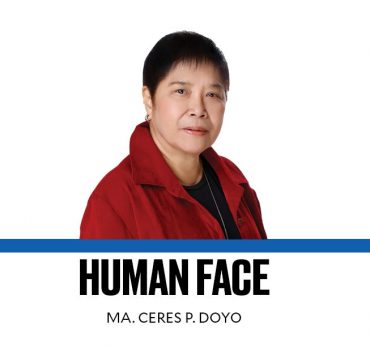‘Deteriorating crime situation’

To taunts and jeers mainly by former president Rodrigo Duterte supporters that law and order has gone lax and rampant crime is back under the Marcos administration, the Palace fired back with a quick riposte in February this year: The crime rate at present, it said, was in fact lower compared to figures under the past administration, citing police records showing a downward trajectory in cases. Even kidnapping incidents had declined following the government ban on offshore gaming operators or Pogos, it added.
Thus, the country’s crime situation was merely being “sensationalized,” declared Presidential Communications Office Undersecretary and Palace Press Officer Claire Castro. “The claim being spread that the crime rate is increasing under President Marcos is propaganda made up by trolls.”
Is it? Just three months later and the administration would be hard-pressed to insist on that assertion. There is, first of all, the horrific abduction and murder of Filipino Chinese businessman Anson Que and his driver in April, even after the Que family had reportedly paid P200 million for their release. That heinous crime followed two other cases that targeted the Filipino Chinese community—one involving a 14-year-old Chinese student in Taguig who was rescued alive but with a finger disfigured, and a Chinese food kiosk owner in Binondo, Manila.
Safer enclave
The headlines since then have steadily built a picture of peace and order deteriorating in communities big and small. Consider: On May 26, four people died—a barangay chief and three others—when a former barangay tanod opened fire on them in broad daylight during a flag ceremony right in front of the Salitran 3 barangay hall in Dasmarinas City, Cavite. A Sangguniang Kabataan member was also left in critical condition, while the gunman killed himself.
Over at upscale Bonifacio Global City, supposedly a safer enclave populated by foreign expatriates, embassy officials, and the Filipino upper classes, two Koreans were robbed while they were having a leisurely evening stroll in a well-lighted part of the area. Four men in two motorcyles came at them with guns and carted off with their cash and bags.
The incident led an unnerved South Korean Embassy to issue a blunt warning to its citizens in the country to exercise extra caution given the “deteriorating crime situation.” While BGC “was considered relatively safe,” it noted that “… armed robberies, deaths, abductions, and other serious crimes against Korean nationals are frequently occurring.”
Increased risk
Salcedo Village in Makati saw a similar incident, when a resident barely escaped an attempted robbery by men riding in tandem in front of the very condominium building where the tenant lived. The building’s security personnel were able to intervene, but the incident only underscored how brazen criminality was now infiltrating even the country’s most prominent business district.
The United States has joined South Korea in issuing a travel advisory to its citizens visiting the Philippines. The May 8 notice from the US State Department warns Americans to “exercise increased caution in the Philippines due to crime, terrorism, civil unrest, and kidnapping. Some areas have increased risk.”
Reacting to the advisory, reelected Cagayan de Oro Rep. Rufus Rodriguez denounced it as “an unfair, shotgun warning … [that] will surely hurt our tourism sector.” It is, he added, “particularly biased against our beloved island, Mindanao.”
Rodriguez’s reaction is understandable, but he is barking up the wrong tree. He should direct his wrath instead at the Marcos administration, under whose watch the seeming breakdown in general peace and order is happening.
Draconian approach
At this point, Malacañang can no longer use the “trolls” excuse to paper over the growing public impression that police authorities are once again failing at their job to secure citizens and communities by deterring criminality and lawlessness. And this has implications on the Marcos administration’s credibility far bigger than being an inconvenient peace-and-order problem.
As more unchecked incidents of violence and crime assail ordinary people, they feed into the narrative being pushed by Duterte partisans that Marcos’ passive presidency has squandered the gains of the previous administration in creating a more secure, orderly society through its draconian approach to crime—despite the Duterte regime’s singularly bloody record stemming from its “war on drugs.”
The danger in the perceived foundering of basic law and order is that a heavy authoritarian hand becomes yet again attractive and preferable to a weary, traumatized populace. That’s a prospect Marcos must thwart by delivering firm, effective, responsive governance: by cracking down on the police and other law enforcement agencies to do better at their jobs, and ensuring that peace, stability, and freedom from fear among ordinary citizens are never taken for granted under his administration.

















Asean must act vs online scam industry